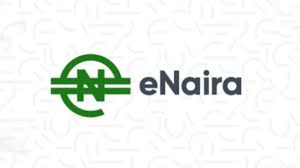Kristalina Georgieva, the managing director of the International Monetary Fund, has issued a warning about the potential for unanticipated “consequences” that could result from the use of digital currencies issued by retail central banks.
In an interview on May 1 at the Milken Institute’s 2023 Global Conference, Georgieva discussed her reservations about retail CBDCs.
The head of the IMF claims that the IMF believes retail CBDCs have much more leeway for error than wholesale CBDCs.
She stated, “We think that retail CBDCs completely transform the financial system in a way that we don’t quite know what consequences it could bring, whereas wholesale CBDCs can be implemented with fairly little space for unfavorable surprises.”
Retail CBDCs are state-backed virtual currencies that central banks issue for usage by individuals and businesses, according to a Cointelegraph report, while wholesale CBDCs are similarly issued by central banks but are made to enable financial institutions to carry reserve deposits with a central bank.
In order to ensure that best practices are adopted, the IMF MD stated that the agency was working with roughly 50 countries. She predicted that this collaboration would have a significant impact on banks and economies in the future.
The decision to produce a CBDC manual to assist central banks with CBDC design and implementation was made earlier by the IMF in response to the unprecedented levels of interest from countries all over the world.
Nigeria became one of the first nations in the world to create a central bank digital currency that is accessible to the general public on October 25, 2021, with the launch of the eNaira.
The Bahamas and the Central Bank of the Eastern Caribbean were also included on the coveted list by the most populous country in Africa.
Godwin Emefiele, the governor of the Central Bank of Nigeria, said during the unveiling that the eNaira was introduced following four years of research by the top bank. The eNaira is a digital currency that is pegged to the naira and used as a store of value and a medium of trade, according to the CBN.
According to the CBN governor, 33 banks were successfully included into the eNaira network, and the central bank issued N500 million to commemorate the launch of the new currency.
The regulator reported that N200m had been given to financial institutions, and at the time of the launch, more than 2,000 consumers had also been accepted.
Once eNaira was operational, the CBDC speed wallet app and merchant wallet became accessible for download.
The merchant wallet had 83,000 downloads as of December 2021, while the consumer wallet had over 583,000 from more than 160 nations.
The CBN governor revealed on Tuesday that as of March 31, 2023, there were around 1.4 million e-Naira transactions.
Emefiele, who was represented by Dr. Hassan Mahmoud, Director of Policy of the CBN, claimed that his team pushed the electronic payment channels by utilizing COVID-19 and other local innovations.
He declared, “There is little doubt that the onset of the Corona Virus epidemic sparked quick improvements in financial technology, leading to speedy digitization of money and finance.
“The CBN seized the chance and introduced the eNaira in October 2021. The eNaira was created to give Nigerians more options for making payments, to promote financial inclusion online, and to potentially expedite social and intergovernmental transactions.
Since its debut, the CBN has continued to change its features to increase its usability for a variety of consumers.
“A smartphone is no longer necessary to utilize the eNaira because it is now compatible with all mobile device generations (both old and new). Over N1.4 million worth of transactions have gone through the eNaira platform so far.













